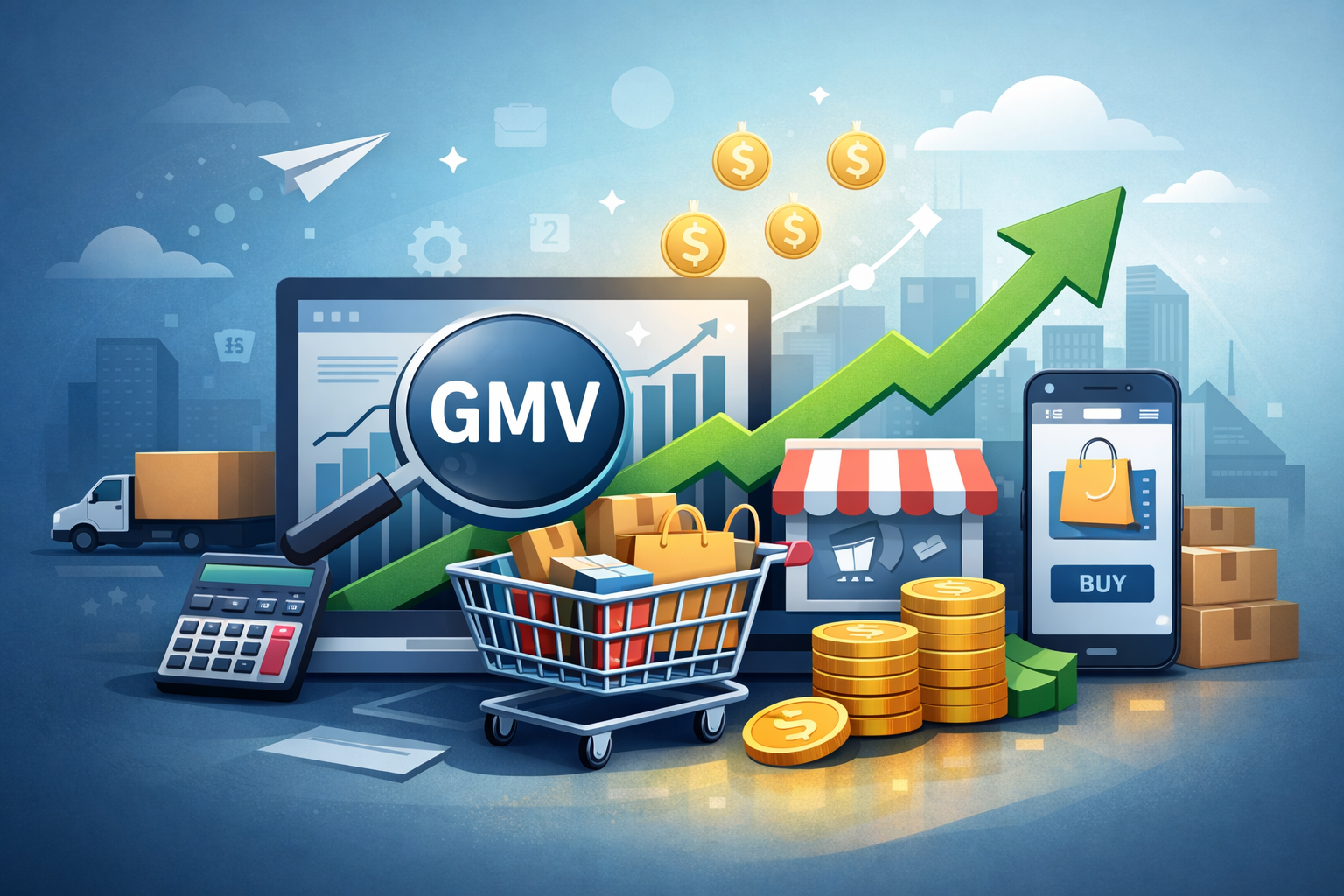Try Zipchat in Action!
Enter your store URL to see how Zipchat would behave.

In today's digital age, e-commerce has become a fundamental part of our lives. With millions of online stores vying for attention, it's crucial for businesses to find effective ways to reach and engage their customers. Email marketing is one such strategy that has stood the test of time and proven to be a reliable tool for increasing sales.
Email marketing, when executed correctly, can help businesses build strong relationships with their customers, increase brand awareness, and boost sales. In this article, we will explore the importance of email marketing in e-commerce and provide a step-by-step guide on how to set up email marketing to grow sales on the popular e-commerce platform, Magento.
Understanding the Importance of Email Marketing in E-commerce
Email marketing plays a crucial role in the success of any e-commerce business. It allows businesses to directly communicate with their customers, delivering personalized messages and offers that are tailored to their interests and preferences. According to a study by DMA, email marketing has an average ROI of 3800%, making it one of the most effective marketing channels available.
The Role of Email Marketing in Sales Growth
Email marketing has a direct impact on sales growth. By sending targeted emails to customers who have expressed interest in their products or services, businesses can drive traffic to their website and increase conversions. In fact, studies show that personalized email campaigns can generate up to six times higher transaction rates compared to generic emails.
Why Choose Magento for Your E-commerce Platform
Magento is one of the most popular e-commerce platforms available today. It offers a wide range of features and functionalities that make it an ideal choice for businesses looking to set up and grow their online stores. With its robust email marketing capabilities, Magento allows businesses to automate their email marketing campaigns, create personalized content, and track the performance of their campaigns with ease.
Moreover, Magento provides a seamless integration with various email marketing tools and services, enabling businesses to leverage advanced segmentation and targeting options. This means that businesses can send highly relevant and timely emails to their customers based on their behavior, preferences, and purchase history, resulting in increased engagement and conversions.
Additionally, Magento's extensive reporting and analytics features allow businesses to gain valuable insights into the effectiveness of their email marketing campaigns. By tracking key metrics such as open rates, click-through rates, and conversion rates, businesses can optimize their email content and strategies for better results. This data-driven approach helps businesses refine their email marketing efforts and achieve higher ROI.
Setting Up Your Email Marketing Strategy
Before diving into the technical aspects of setting up email marketing on Magento, it's important to first define your email marketing strategy. This involves identifying your target audience and creating a content strategy for your emails.
Establishing a solid email marketing strategy is crucial for businesses looking to effectively reach and engage their audience. By incorporating personalized and targeted email campaigns, companies can build stronger relationships with their customers and drive higher conversion rates. Email marketing has proven to be a powerful tool for businesses of all sizes, offering a direct line of communication to deliver valuable content and promotions.
Identifying Your Target Audience
Understanding your target audience is key to the success of your email marketing campaigns. By segmenting your audience based on demographics, behavior, and preferences, you can deliver more relevant content that resonates with your customers. This will not only improve engagement but also drive higher conversion rates. According to Campaign Monitor, segmented email campaigns can result in a 760% increase in revenue.
Segmentation allows businesses to tailor their messages to specific groups within their customer base, ensuring that the content resonates with each recipient. By analyzing customer data and behavior, companies can create targeted campaigns that address the unique needs and interests of different segments. This personalized approach fosters a sense of connection and loyalty among subscribers, ultimately leading to improved customer retention and satisfaction.
Creating a Content Strategy for Your Emails
Once you have identified your target audience, it's time to create a content strategy for your emails. Your content should be relevant, valuable, and engaging to encourage your subscribers to take action. Whether you're promoting a new product, offering a discount, or providing educational content, make sure your emails are tailored to the interests and needs of your audience. Additionally, consider using compelling subject lines, personalized greetings, and visually appealing designs to grab your subscribers' attention.
Developing a compelling content strategy involves more than just promotional offers and product updates. Businesses can leverage email marketing to share industry insights, customer success stories, and helpful tips that add value to the subscriber's inbox. By providing relevant and engaging content, companies can position themselves as trusted advisors in their field, fostering long-term relationships with their audience. Incorporating a mix of promotional and informational content helps maintain subscriber interest and keeps them engaged with the brand over time.
Implementing Email Marketing on Magento
Now that you have defined your email marketing strategy, it's time to implement it on Magento. Magento offers a variety of email marketing extensions that can help streamline your email marketing efforts and enhance the overall customer experience.

Implementing email marketing on Magento involves more than just installing an extension. It requires a strategic approach to engage customers effectively and drive conversions. By leveraging the power of personalized email campaigns, you can create targeted messages that resonate with your audience and encourage repeat purchases.
Choosing the Right Email Marketing Extension for Magento
When selecting an email marketing extension for Magento, consider factors such as ease of use, features, and compatibility with your store. Popular email marketing extensions for Magento include MailChimp, Klaviyo, and Constant Contact. These extensions allow businesses to automate their email campaigns, segment their audience, and track the performance of their emails.
It's essential to choose an email marketing extension that aligns with your business goals and marketing objectives. Look for features such as advanced segmentation capabilities, A/B testing functionality, and integration with other marketing tools. By selecting the right extension, you can create targeted campaigns that drive engagement and conversions.
Configuring Your Email Marketing Settings
Once you have chosen an email marketing extension, you need to configure the settings to align with your email marketing strategy. This involves setting up email templates, defining email triggers, and integrating the extension with your Magento store. By customizing your email settings, you can ensure that your emails are on-brand and deliver a consistent customer experience.
Effective email marketing configuration goes beyond just aesthetics. It involves optimizing your email content for deliverability and engagement. By focusing on factors such as subject lines, personalization, and call-to-action buttons, you can increase open rates and click-through rates. Additionally, implementing email marketing best practices, such as maintaining a clean email list and monitoring email performance metrics, can help you refine your campaigns for better results.
Optimizing Your Email Marketing Campaigns
To maximize the effectiveness of your email marketing campaigns, it's important to continually optimize and refine your strategies. Here are two key areas to focus on:

Segmenting Your Email List for Better Results
Segmenting your email list allows you to send more targeted and personalized emails to specific groups of subscribers. By segmenting based on demographics, purchase history, or engagement levels, you can deliver content that is highly relevant to each segment. This can significantly improve open rates, click-through rates, and ultimately, drive higher conversions.
For instance, segmenting your email list based on the subscriber's location can enable you to send localized content or promotions tailored to their region. This level of personalization can create a stronger connection with your audience and increase the likelihood of them engaging with your emails. Additionally, segmenting by purchase behavior can help you recommend products or services that align with their interests, leading to a higher conversion rate.
Personalizing Your Email Content
Personalization is a powerful tool in email marketing. Adding a personal touch to your emails, such as using your subscribers' names, recommending products based on their past purchases, or sending personalized birthday offers, can greatly enhance the customer experience and drive engagement. According to a study by Experian, personalized emails have 29% higher open rates and 41% higher click-through rates compared to generic emails.
Moreover, dynamic content personalization can take your email marketing to the next level. By dynamically changing the content of your emails based on the recipient's behavior or preferences, you can create a more tailored experience for each subscriber. This could involve showcasing different products based on their browsing history or highlighting specific promotions based on their interaction with previous emails. The ability to deliver highly relevant content in real-time can significantly boost engagement and conversion rates.
Measuring the Success of Your Email Marketing Efforts
To gauge the success of your email marketing efforts, it's important to regularly measure and analyze key metrics. By tracking these metrics, you can gain valuable insights into the performance of your campaigns and make data-driven decisions to improve your strategies.

Key Metrics to Track in Your Email Campaigns
Some key metrics to track in your email campaigns include open rates, click-through rates, conversion rates, and revenue generated. These metrics provide valuable insights into the effectiveness of your subject lines, content, and calls to action. By identifying trends and patterns in these metrics, you can optimize your campaigns for better results.
Adjusting Your Strategy Based on Performance Data
Based on the performance data you collect, it's important to continuously adjust and optimize your email marketing strategy. Test different subject lines, content formats, and send times to identify what resonates best with your audience. By learning from your data and making iterative improvements, you can continually enhance the impact and success of your email marketing campaigns.
But how do you go about testing different subject lines, content formats, and send times? One effective method is A/B testing. This involves creating two versions of your email campaign, each with a different element you want to test. For example, you could create two versions of your subject line: one that is more descriptive and one that is more creative. Then, you can randomly divide your email list in half and send each version to a different group. By comparing the open rates and click-through rates of the two groups, you can determine which version performed better and use that information to optimize future campaigns.
Another important aspect to consider is personalization. Personalized emails have been shown to have higher open and click-through rates compared to generic ones. By segmenting your email list based on demographics, purchase history, or engagement level, you can tailor your content to each group's specific interests and needs. This level of personalization not only improves the effectiveness of your campaigns but also enhances the overall customer experience.
In conclusion, email marketing is a powerful tool for growing sales on Magento. By understanding the importance of email marketing in e-commerce, setting up a solid email marketing strategy, implementing it effectively on Magento, and continually optimizing your campaigns, you can drive significant sales growth and build long-lasting relationships with your customers. Remember, success in email marketing lies in understanding your audience, delivering valuable content, and leveraging data to make informed decisions. So, take the first step and start harnessing the power of email marketing to grow your sales on Magento today!
Enhance Your Magento Store with Zipchat AI
Ready to take your Magento store's email marketing to the next level? Integrate Zipchat AI and experience the most powerful AI Chatbot for Ecommerce. Engage and convert your visitors like never before with an average 13.4% Chat-to-Sale conversion rate. Don't miss out on the opportunity to elevate your customer support and sales strategy. Start your 7-Day Free Trial today and watch your engagement soar!








